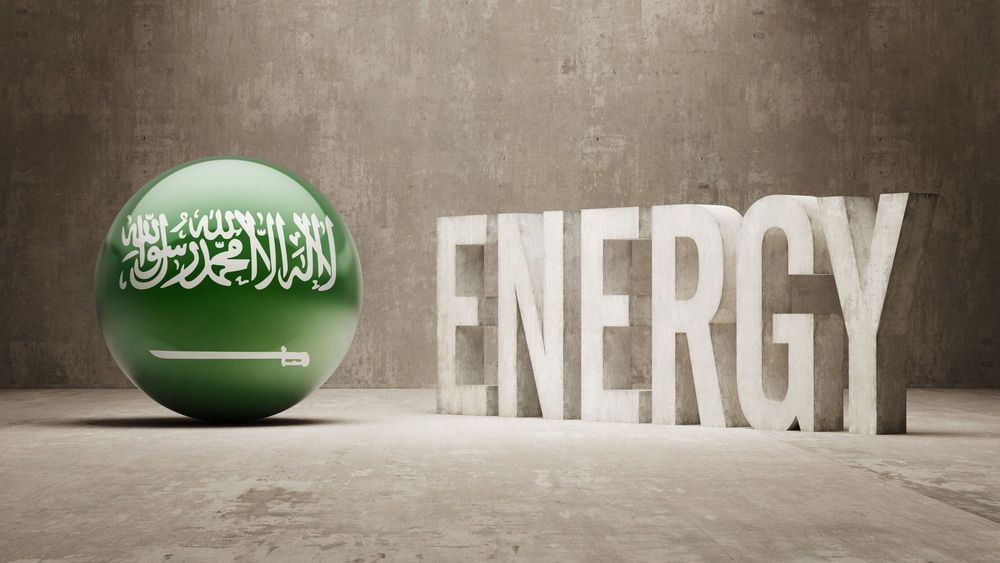Decoding the US “secret authorizations” to sell nuclear technology to Saudi Arabia
By Viet Phuong Nguyen | September 10, 2019

US Energy Secretary Rick Perry granted “secret authorizations” for six American companies to provide nuclear technology and technical support for Saudi Arabia. Such approvals are granted through Part 810 authorizations and allow companies to do preliminary work on nuclear power ahead of a US nuclear cooperation agreement with another country, but no equipment that would go into a nuclear power plant can be shipped. What does the Part 810 authorization mean? Is it the right choice for the Saudi case? And how does Perry’s authorization affect prospects for American nuclear business and nonproliferation policy in the Middle East?
Why a Part 810 authorization is the right choice for the Saudi case. Section 123 of the Atomic Energy Act covers cooperation with other nations and is considered the cornerstone of US policy on nuclear cooperation and nonproliferation. Section 123 also defines the prerequisite criteria for significant civil nuclear cooperation agreements between the United States and other countries.
Saudi Arabia and the United States have not signed a Section 123 agreement, but without a nuclear cooperation agreement, limited forms of cooperation related to the “development or production of any special nuclear material outside of the United States” (technology transfer) can still be authorized by the US Secretary of Energy. An exception can be made through a recommendation by the National Nuclear Security Administration if it finds that the cooperation “will not be inimical to the interest of the United States.” The Part 810 authorization between Saudi Arabia and the United States was considered and granted by the Secretary of Energy, in consultation with the National Nuclear Security Administration. There are several differences between a Part 810 authorization and a 123 agreement; the most important for this case is that a 123 agreement is a “congressional-executive agreement” and therefore gives Congress a voice in the approval process, whereas a Part 810 authorization can be made by the energy secretary without congressional-executive consultation.
Going through the Part 810 authorization process may be the right choice for the Saudi case. Without the need to go through the scrutiny of the US Congress, American companies can get Part 810 authorizations significantly more quickly. This authorization allows them the opportunity to talk with the officials planning Saudi’s nuclear energy projects, to help Saudi engineers design their nuclear programs from the ground up, and to get a foot in the actual construction of nuclear power plants as the Saudis already began entertaining bids for the work. The Part 810 agreement is a good first step toward making American nuclear energy export more attractive to a foreign buyer like Saudi Arabia, but it must be kept in mind that this is all a first step. Part 810 authorizations do not allow any technology transfer, and therefore, a 123 agreement would have to be signed before any possible nuclear projects could start.
Even with the first step of the Part 810 authorization secured, it is still a long shot for any American company to secure the Saudi bid. There are many obstacles still to overcome not the least of which being that the U.S. industrial nuclear industry is in decline. Years of little to no new nuclear power plants being built in the United States has degraded the supply chain making it nearly impossible for US companies to secure the resources they need at the scale required to build a nuclear power plant much less establish the logistics involved to do so securely overseas. Also, US companies are at a disadvantage when it comes to providing the latest in nuclear energy technology. The Nuclear Regulatory Commission (the body that makes sure all new and existing nuclear projects in the United States are safe) makes it very difficult to test first-of-their-kind nuclear projects. The US industrial nuclear workforce is also aging out with little up-an-coming replacements; therefore the United States does not have a large workforce trained and ready to export nuclear technology. Finally, US companies are competing against state-backed nuclear energy exporters. State-backed nuclear exporters are at liberty to make deals at the nation to nation level, allowing them to be more flexible with how logistics like compensation and regulation are dealt with. While American companies are not representative of the US government and therefore cannot negotiate on a sovereign to sovereign level.
The second major obstacle is that although Saudi Arabia and the United States have discussed the possibility of a 123 nuclear cooperation agreement, the agreement is still a long way off. Saudi Arabia does not want to forfeit its right to acquire or develop enrichment and nuclear reprocessing technologies. Its regional rival Iran has this knowledge and capability, and the Saudis believe it’s not in their best interest to negotiate away this capability. As the primary tools that help a country to develop nuclear weapons, the denial of enrichment and reprocessing has always been a key negotiating point in any 123 agreement and a check for the general nonproliferation policy of the U.S. For example, to facilitate its acquisition of nuclear power technology, and demonstrate its transparent nuclear policy, the United Arab Emirates (UAE) in 2009 became the first country to explicitly renounce its right to enrichment and reprocessing in the U.S.-UAE 123 agreement – a decision that made this 123 agreement a “Gold Standard” in nonproliferation according to the U.S. Government.
Another clause of the “Gold Standard” agreement is that any other country in the Middle East region would not get more favorable terms than UAE. This strict requirement and its insistence of applying the Gold Standard to other Middle Eastern states is one of the reasons why the U.S. has not been able to conclude further nuclear cooperation agreements in this region since the 2009 deal with UAE. The failure to conclude 123 agreements, alongside with the lack of cost competitiveness, has made American companies outsiders in the race to provide nuclear power technology for countries like Jordan and Saudi Arabia, which, despite their close relationship with the U.S., have looked elsewhere for suppliers, Russia, South Korea, and China.
Given the proliferation concerns over a possible nuclear deal with Saudi Arabia expressed recently by the U.S. Congress. As well as alarming statements made by Saudi officials such as “if Iran acquires a nuclear capability, we will do everything we can to do the same,” it will not be easy for the U.S. to negotiate a 123 agreement with Saudi Arabia, or for such a deal to get approval from U.S. Congress.
A reasonable approach in the absence of alternatives. The nuclear nonproliferation regime benefits when the United States is in a position of strength within the nuclear export market. The safety, security and nonproliferation standards of each nuclear project are negotiated individually, meaning that the more projects that are negotiated by parties with the highest safety security and nonproliferation standards (like the U.S) the safer the industrial nuclear industry becomes. A United States presence in the development of nuclear power in Saudi Arabia would help to ensure that safety security and nonproliferation standards are high and serve as a driving force for better Saudi compliance to the nuclear nonproliferation regime. A value add as Saudi Arabia’s compliance with the nonproliferation regime has been far from satisfactory.
Detractors of the Part 810 authorizations in the Saudi case may reasonably argue that the security situation in the Middle East and the explicit nuclear hedging intention of the Saudi government make it impossible for any American nuclear company to be involved in the Saudi nuclear power program without creating new proliferation risks. This argument does not take into account the fact that even without US technical support, Saudi Arabia has other potential suppliers of nuclear technology, including Russia and China, both of which have signed various agreements with Saudi Arabia in civil nuclear cooperation. The United States could also create leverage to help ensure that Saudi Arabia does not acquire the ability to enrich and reprocess by convincing traditional US partners like Japan, South Korea, or France not to share their knowledge and knowhow.
A United States effort to prevent as many proliferation risks as possible within the new Saudi nuclear program is worthwhile. Be that through a Gold Standard 123 agreement or a full denial of enrichment and reprocessing technologies efforts must be continued given the tense security situation within the Middle East. The United States must set itself up to do this work by maintaining a foothold in the nuclear workings of Saudi Arabia through mechanisms like the Part 810 authorizations. In the absence of alternatives, even such a limited foothold will help the United States have positive impact on Saudi compliance to the nonproliferation regime, and to nuclear safety and security culture internationally.
Together, we make the world safer.
The Bulletin elevates expert voices above the noise. But as an independent nonprofit organization, our operations depend on the support of readers like you. Help us continue to deliver quality journalism that holds leaders accountable. Your support of our work at any level is important. In return, we promise our coverage will be understandable, influential, vigilant, solution-oriented, and fair-minded. Together we can make a difference.
Topics: Analysis, Nuclear Energy
















I am surprised to read any argument that supports nuclear power plants. This is disappointing. The Bulletin should take a stronger stand on any proliferation of nuclear power as well as nuclear weapons.